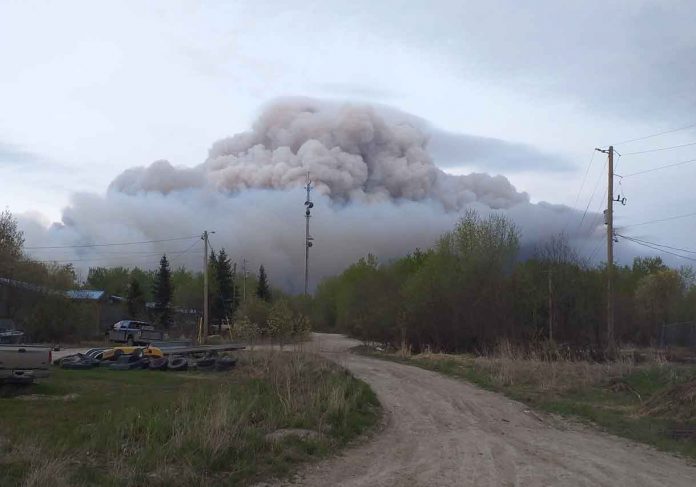Air Quality Warnings and Impacts
THUNDER BAY – WEATHER ADVISORY – Northwestern Ontario is currently grappling with elevated air pollution levels due to smoke from ongoing forest fires. Improvements in air quality are expected today, but a deterioration is forecast for Sunday morning.
Even at low concentrations, wildfire smoke can pose significant health risks. As such, it’s essential to take necessary measures to minimize smoke exposure.
Air Quality Alerts continue for Ear Falls, Red Lake, Sachigo Lake, Kitchenuhmaykoosib Inninuwug, Dryden, Vermilion Bay, Ignace, Armstrong / Whitesand, Pickle Lake, Cat Lake, Summer Beaver, Sandy Lake, Deer Lake, Wunnumin Lake, Kingfisher Lake, Sioux Lookout and Savant Lake.
High-Risk Populations
Certain groups, including those with lung or heart disease, older adults, children, pregnant individuals, and outdoor workers, are particularly susceptible to the health effects of wildfire smoke. It’s advised to suspend outdoor activities and seek medical attention if anyone under your care experiences symptoms such as shortness of breath, severe cough, wheezing, dizziness, or chest pains.
Indoor Air Quality Measures
Maintaining clean indoor air is crucial during this period. If the temperature in your home is comfortable, keep your doors and windows closed. Use an air purifier equipped with a High Efficiency Particulate Air (HEPA) filter in frequently occupied rooms, and avoid purifiers that produce ozone. For more information, please visit the official Health Canada website.
Temporary Relocation and Outdoor Precautions
Taking breaks from the smoke by temporarily relocating or finding a location with clean, cool air can help. If outdoor activities are necessary, use a well-fitted NIOSH certified N95 or equivalent respirator to reduce exposure to fine smoke particles. Note that respirators do not reduce exposure to gases in wildfire smoke.
Community Support and Evacuation Preparedness
Ensure to check on vulnerable individuals under your care. Follow the instructions of local authorities and evacuate if required. Review your wildfire smoke plan and ensure an adequate supply of necessary medical supplies.
Mental Health Considerations
Experiencing feelings of stress, anxiety, or isolation during smoke events is normal. Mental health care providers can offer support during these times. For additional resources and support, visit the Wellness Together Canada website.
For information on reducing health risk and personal contributions to pollution levels, as well as for current and forecast Air Quality Health Index (AQHI) values, visit the Air Health website.







